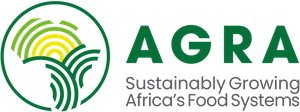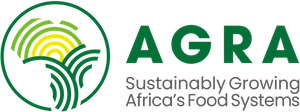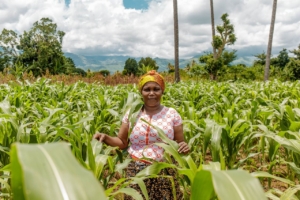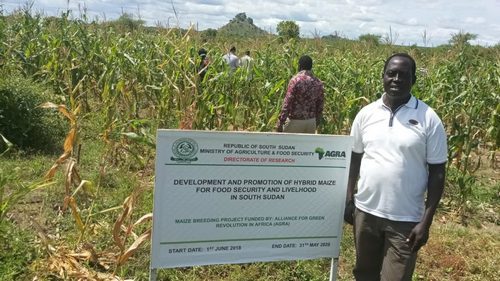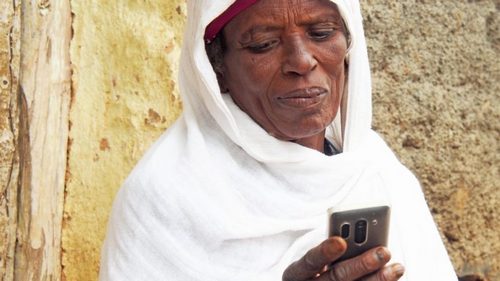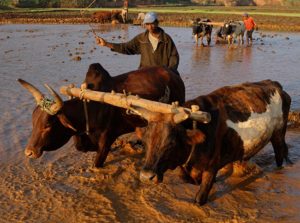Sustaining and scaling progress in Africa’s agriculture requires greater political, policy, and financing commitments from across the public and private sector. Achieving these will depend on a strong mechanism for coordination to synergise the efforts and objectives of various players.
In recognition of the wide-ranging nature and complexity of the challenges facing smallholder farmers in Africa, AGRA sees strategic partnerships as a key pillar of its strategy. These partnerships support the creation of alignment between government priorities and private sector interests, for improving impact at smallholder farmer level and for mobilizing private sector investment to scale.
The Partnership for Inclusive Agricultural Transformation in Africa (PIATA) was launched in 2017 as a strategy for transforming agricultural systems by driving integrated delivery within agro-economic zones and across value chains, for enhancing in-country coordination and for deepening engagements with the private sector to transition African agriculture from subsistence to sustainable business occupations.
PIATA Partners
AGRA’s partners in PIATA are leading organizations in African agriculture, including Bill & Melinda Gates Foundation (BMGF), Rockefeller Foundation, UK Foreign, Commonwealth & Development Office (FCDO), BMZ Germany and the United States Agency for International Development (USAID), all who also support AGRA’s overall strategy and overall goal and objectives.

The UK Foreign, Commonwealth & Development Office (FCDO) has recently joined the partnership and brings greater focus on regional food markets and food trade through policy predictability and market systems development. The Federal Ministry of Economic Cooperation and Development. Other partners may join PIATA in future.
At its onset, the partnership provided up to U.S. $280 million to catalyse and sustain inclusive agricultural transformation in at least eleven countries in Africa, which include Burkina Faso, Ethiopia, Ghana, Kenya, Malawi, Mali, Mozambique, Nigeria, Rwanda, Tanzania, and Uganda. BMZ, currently a non-voting member and a resource partner, provided additional resources of EUR 10 million for co-financing AGRA’s strategy in Burkina and Ghana.
PIATA Objectives
In pursuit of various outcomes including strengthened policy environments, increased youth and women’s empowerment, secure public private partnerships and farmer capacity, the following are PIATA’s objectives:
- Increased staple crop productivity.
- Strengthened and expanded access to national and regional markets.
- Increased capacity of smallholder farming households and agricultural systems to better prepare for and adapt to shocks and stresses.
- Strengthened continental, regional, and government multi-sectoral coordination and mutual accountability in the agricultural sector.
To achieve the objectives, PIATA leverages a wide complement of tools, systems, knowledge, and resources of partners to catalyse an inclusive agricultural transformation in Africa that will see increased incomes and improved food security for 30 million smallholder farm households.
How PIATA Works
The alignment and coordination functions of PIATA are led by the PIATA Advisory Committee (PAC) and the Country Advisory Committee (CAC). The two support transformation at scale while engaging public and private players in the agriculture sector join in support of agricultural transformation in the continent.
Working with and complementing existing national, regional and continental bodies and initiatives, PIATA is supporting countries to deliver on the Malabo commitments through AGRA’s full business model of grant-making, consultancies, technical assistance, partnerships, communications and convening.
PIATA leverages a wide complement of tools, systems, knowledge, and resources of partners to catalyse an inclusive agricultural transformation in Africa that will see increased incomes and improved food security for 30 million smallholder farm households.
Building Alliances and Coalitions
Under the transformation of agriculture initiatives of PIATA, AGRA has entered into various partnerships that are enhancing the objectives of current AGRA strategy. In May 2020, with funding from the Bill and Melinda Gates Foundation, AGRA launched the Hub for Agricultural Policy Action in Africa (HAPA).
AGRA is collaborating with WEF, AfDB, IFAD and others to implement the African activities of the Food Action Alliance (FAA). AGRA has supported countries and partners to submit various food systems projects, initiatives and issues to the Alliance, in order to find and connect with partners, access a knowledge base and best practice on food systems transformation and develop the foundation for new FAA Flagships.
Agribusiness Deal Room
The AGRF Deal Room is a year-round matchmaking platform that aims to catalyse new business deals, partnerships and commitments. In addition to access to finance, it also provides companies in the agriculture and agribusiness sectors with mentorship, partnership and market entry solutions to support their growth objectives.
Since its launch in 2018, the Deal Room has facilitated over 400 companies with targeted investor matchmaking. It has also supported 17 governments with investor engagements. The introduction of the virtual Deal Room platform has added significant momentum, with the 24-hour networking platform allowed various actors to interact, engage and extend discussions on bi-lateral and multi-lateral partnerships. The Deal Room platform has hosted over 800 bi-lateral and multi-lateral meetings on its virtual platform. Over the last three years, the Deal Room has facilitated public and private actors who jointly sought an aggregate capital of $12 billion.
Select Achievements to Date
Within our 2017 – 2021 strategy, AGRA – the main implementing partner of PIATA – had committed $130 million worth of investments across the eleven priority countries. These investments, together with AGRA’s technical assistance and partnerships have resulted in the following results:
Systems
- Through coordinated, downstream investments at the sub-national level in agricultural systems, we reached 10 million farmers and invested US$ 13.5 per farmer through our strengthening of downstream delivery systems.
- 7.7 million farmers are using improved technologies
- 3.8 million farmers are using improved seeds
- 3.1 million farmers access formal financial services
- 1.2 million are using post-harvest storage technologies
- 50% further reduction in distance to the agro dealer
- We recruited and trained about 32,000 village-based advisors, increasing adoption of technologies and good agronomic practices
- 700 m US$ of private sector investment attracted
- 5,000 SMEs in input + output markets supported
Policy, State Capability, and Regional Food Trade
- Through our help in policy reform, facilitating government-led investments, and fostering regional trade, US$ 18 in public and private sector flagship investment has been mobilized for every dollar invested by AGRA. This has enabled us to reach 16.8 million farmers.
- 39 of 44 state capability areas with progress
- 1.4B USD mobilized for 10 flagship programs
- 38 Policies approved, improving agricultural systems
- 7 Food trade policies undergoing reform
- 40% Countries improving Performance on Malabo targets
Partnerships
- Through investments, linkages, and partnerships we facilitated for private sector companies to impact agricultural systems. We have realized US$ 8 in added value from strategic partnerships for every dollar invested by AGRA, reaching 2.3 million farmers.
- In Covid-19 Response, our partnerships saw 14,000 tons of seeds worth US$ 7 million and 40,000 tons of fertiliser worth US$ 25 million being distributed. This partnership reached 950,000 farmers.
- In Youth Agripreneurship Development, our partnerships in Ghana and Nigeria resulted in 12%-22% increase in yields and 27%-28% increase in incomes.
- Partners in the Food to Market Alliance (FTMA) invested about US$ 13 million, which resulted in US$ 30M worth of harvest sold and US$ 1.2M in loans to farmers, with the partnership reaching 90,000 farmers.

